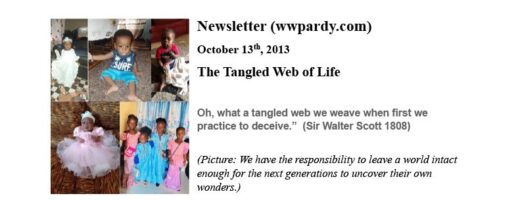The search for solutions, a magic formula or a key to unlock some hidden source that will solve the present human malaise, has taken on proportions of untold dimensions. Leaders and experts think that they have the knowledge and the capabilities to determine these solutions and they believe that they should know. This results in attempts to explain present societal circumstances with outdated theories and rapidly structured programs and projects. All are expensive at best, and destructive at worst, yet, few address the fundamental issues.
There is a continuum of debate about social and economic theory. Countless research documents articulate what these experts perceive to be the correct approaches. Politicians, academic advisors and bureaucratic administrators all espouse the latest panacea for righting what is incorrect and fixing what they presume is broken – whether it be economies, social structures or misdirected humans.
The conundrum is that people desire someone to solve their problems. They have been conditioned to perceive that those who would be experts or in positions of authority will provide them the solutions. They lack the confidence in their own abilities and common sense. The experts, conversely, have been unable to demonstrate an approach that would indicate a solution to present economic and social quandaries. People’s expectations are continually being raised with promises that can’t be met. Disappointments ensue and the sense of despair grows.
The price for such expectations is high and the cost is increasing in the overall gloom it is creating in society. What is really required is “low cost” hope. The kind that has been provided throughout the centuries by prophets and philosophers who have always been willing to share life’s truths for free. The value of hope is priceless. Its only cost, as the prophets and philosophers would attest, is the stress and pain of living and daring to question those who think that they have discovered the ultimate truths. Experiencing life, with all its wonder, while overcoming fear, trusting in faith and the mysterious forces that shape our lives is the only prerequisite for hope.
What the experts fail to recognize, and refuse, to admit is the fact, that solutions are not universal, they are not complex but are individual and simple. Each individual comes into this world with particular intellect, talents, and attributes. Each searches for opportunities that allow contribution and sharing, to improve present and future circumstance and to leave a legacy. It is human nature to crave affirmation. Human beings seek the assurance that their lives will be recorded in the history of time. These spiritual needs are constant and enduring – to give; to contribute; to be part of something greater than ourselves. These fundamental drives or desires, are the primary building blocks of personal development – the real keys to solving our individual dilemmas. Appeasing these yearnings is critical to resolving societal ills.
The fundamental building block of society, of community and of social and economic orders emanates from this inherent human need to contribute. Hope arises from the desire that our contribution will be recognized, be appreciated and lead to personal affirmation. This appreciation when given and if genuine, allows growth and development to occur. It affords opportunity to the recipient also to contribute, for in the appreciation the original contributor is affirmed and the recipient through their response is reinforced. This process builds confidence, enhances self-worth and leads to individual development. It is the individual contribution that engenders the hope.
Difficulties occur, when through perceived lack of opportunity, individual contribution cannot be made, or when the giving is not recognized or the appreciation insincere. Then hope becomes an expectation that is neither achieved or fulfilled. The sense of despair is deepened when people are requested to contribute, yet feel that their contribution was not recognized or acknowledged. A simple example is in present government approaches to consultation. People are asked to participate in consultative processes, yet, outcomes appear to have been decided in advance. Anguish grows because people feel that the leaders listen to their ideas but ignore their suggestions. Their contribution, obviously, has little worth and hope turns into despair. Real consultation is a communication process where individuals come together, express their views, determine the issues and agree on a course of action and compromise in the interest of the majority.
An impasse in human growth and development appears imminent. Basic human values and fundamentals are buried in complex theories and convoluted processes. It is an era not unlike the periods of transition of past generations. Such periods of history have often led to conflict and upheaval, until basic human values have been recognized and new principles established. Such turmoil contributes to life’s experience and ensures that everyone feels the traumas and anguish in order to ultimately, appreciate its wonders. It is a part of the evolution of society – accepting the changes that life affords.
Transitional shifts from one generation to the next, as we are facing in the world today, heighten these passages. In recent history, the developed world, experienced several such transitions. The advent of mass production, as part of the industrial revolution, impacted entirely the way people provided for themselves and how and where they lived. During the thirties economic shifts jogged a whole generation from their security. In the sixties the exuberance of youth, by challenging the fundamental principles that were influencing society, set in motion a movement that reshaped traditional lifestyles. These shifts were most visible in the United States where the rebellion to the Vietnam war and to poverty shook that country’s society to its foundations.
The transition now being experienced is even more pronounced because of the technological advanced nature of communications and transportation. Technology allows people throughout the developed world to evidence and to relate to the traumas and joys of others instantaneously.
Society is being confronted with a culmination of the consequences of previous transitions. The philosophical, structural and geographic boundary changes of the evolving global community make us unsure of who we are and where we fit. The very make-up of our communities, regions and countries are under restructuring and re-organization. This physical reshaping is evident in the globalization and decentralizing processes in the private and public sectors. Adaptation in governance, policies and services is necessary. Re-definition of our identities, in this context, now becomes critical. Human values will once again have to be authenticated.
Examining the present economic and social imbalances and comparing them to the lessons of the past, would make evident a pattern for designing the “solutions”. The most recent historical examples of the thirties and sixties would demonstrate that people came together to address issues, understand their predicament, then collectively and actively challenge the direction of those in authority. They came to understand their own circumstances and eventually took control and forced those in power to make the changes that made life more acceptable and bearable. In so doing, they came to realize their own importance and value, but, not before many had experienced pain and anguish.
The move to mass production at the turn of the last century allowed advances to science and technology unheard of in history. It afforded those who were fortunate to live in the developing world a style and quality of life beyond their wildest dreams. But it was people participation that led to the advent of the trade union movement that assured a fairer distribution of the economic benefits.
The plight of people in the Depression of the thirties led to the creation of many of the economic tools that are still utilized today. However, it wasn’t government policy or business acumen that lead people out of the despair of depression. It was the people movements that brought us new economic models such as cooperatives and credit unions which provided the hope and encouragement.
The protests of the sixties were again people driven processes that fostered the development of a new social order and modern social programs. These programs were instrumental in bettering the conditions and opportunities for many who had been disadvantaged.
The patterns to effect the changes were the same and the mechanisms similar. These included people coming together to share, to participate and to help make the world a better place. What emanated was awareness, education and strong human bonds that became the solutions to overwhelming perplexities.
The economic and social restructuring presently being experienced is unparalleled since the movement to mass industrial production during the industrial revolution. The models that have become standard mechanisms for employment and wealth distribution no longer relate. Designed for different needs, based on outdated philosophies and rigidly adhered to principles, they no longer are relative in our technically advanced society. Corporate and union structures no longer mesh or are compatible because they have lost the perspective of the values that were so integral to their creation. Economic structures, social programs, spiritual orders and fundamental philosophies are under duress.
The resultant impacts on economic and social orders has spawned the search for explanations, and a seemingly unending effort to find the instant or universal “solution”. Present efforts to reform and reinvent our institutions are attempts to redress their ineffectiveness and modify their complex designs. But these efforts are mechanical, they are structural and they are as complex as the systems themselves.
What is not understood is that there never was only one problem so there never can be just one solution, but as many as there are people. The key to resolving our present socio-economic crisis lies in the recognition of the value of each individual with their own talents, abilities and developed skills and what they perceive as their limits.
Recent history would suggest that there is but one mechanism that will ensure better understanding and more comfort with present circumstances – that is communication and reflection. Mechanisms must be designed that allow people to engage in meaningful communication, which will lead to real sharing, understanding and the awareness of hope. Sincere communication will provide the appreciation that people crave and the affirmation and security that is sought. There must be recognition that the dilemmas are individual before resolution can occur.
Those who are leaders, politicians and experts must realize that they really don’t have all the solutions. They must understand that they need not carry the burden of knowing all the answers. A commitment to process, meaningful and participatory, is necessary. Honest and open discussion by both those who consider themselves in control and those who feel controlled has to evolve from this process. People must openly discuss philosophy or beliefs based on common human values, and not just dwell on their wants and needs. Institutions must revisit the basic values that led to their organization, before concentrating on redefining their structures. Most of all, each individual will require faith in their own talents and abilities and in a higher spiritual status – the ultimate aim of humanity.
This is the approach that has been used throughout modern history. It is simple to create the means, the forums, the venues for people to talk, to communicate, to share, and to participate in taking charge of their own lives. Modern telecommunications makes this process less complex today than in the thirties, when kitchen meetings and community forums led to re-education and spawned so many new economic models. Today’s approach to change need not be violent as in the sixties, when mass rallies caused destruction and injury before effecting change.
Individuals must be encouraged to communicate openly, and to share their thoughts and aspirations. Appreciation must be given to all who participate and their achievements recognized. Only then will the process of renewal begin and optimism, creativity, activity and ultimately development occur. For development has little to do with economic or social theories, strategic plans, or experts. Expensive, complex structural developments, programs and projects that must be delivered will not in themselves solve our dilemma.
Societies that are to flourish must begin with an appreciation of the basic values that led to the development of present cultural roots and traditions. Philosophies that allow understanding of these values and their cultural relationship must evolve. Principles that people can respect must be developed. Appropriate structures that facilitate the adherence to these principles will then become apparent. The process of revisiting original values, readdressing philosophies, generating new principles and subsequently developing structures is imperative for the continued survival of any society.
This is the juncture that most of the developed world is encountering. The debates over which principles, theories, and structures were the cause of our present dilemma are redundant. Philosophical issues have to be discussed, new principles established, and new theories developed. Experimentation with structures, that allow the development of those that best meet our present needs, will be required.
Faith in the individual must be restored. This will lead to re-establishing trust in those who are willing and able to lead and those who are the thinkers in society. The reflections of thinkers and leaders of today are as valuable as those of past eras. There must be a realization that there are as creative, innovative and intellectual minds available today as in previous times of transition, in other centuries or in different societies.
The sense of despair has led to suggestions that there is no light at the end of the tunnel or that the light has become very dim. This light that is continually sought is only made dim with fear, with unrealistic expectations and with limitations that have been adopted. Traditional thinking patterns and ensuing habits are the obstacles that hide the brightness and hope. Brightness is obscured by the protection offered by those who consider themselves to be in control. Because they believe that they possess more knowledge, they assume responsibilities for others who become their constituents. Subsequently, those they purport to represent consider themselves inferior and are impeded from making a contribution or recognizing and fulfilling their own aspirations. It is the search for the glimmers, the rays of hope, that are intrinsic in each individual -the hope for themselves, their children and those who follow that will lead to a brighter outlook.
Community begins when two people share. The essence of the process of Community Development is about people coming together, communicating, and working for common purposes. This concept appears to have been designated as the panacea to solve our ills. What needs to be remembered from previous times is that Community Development is a simple process that leads to vision, strategies and ultimately culminates in development of individuals and the communities they represent. It begins at the bottom, but has to be encouraged and supported by those that consider themselves to be at the top.
Hope will replace despair when we retreat from the search for the “solution”. It will resurface when we recognize the individual roles that people play within society. Hope will grow stronger with the understanding that everyone has something of value to contribute. Hope will prevail when we again encourage active open communication and devise the mechanisms that allow as many as wish to participate and reap the benefits which everyone seeks. Sustainability of communities, of social order and economics will again become evident.


